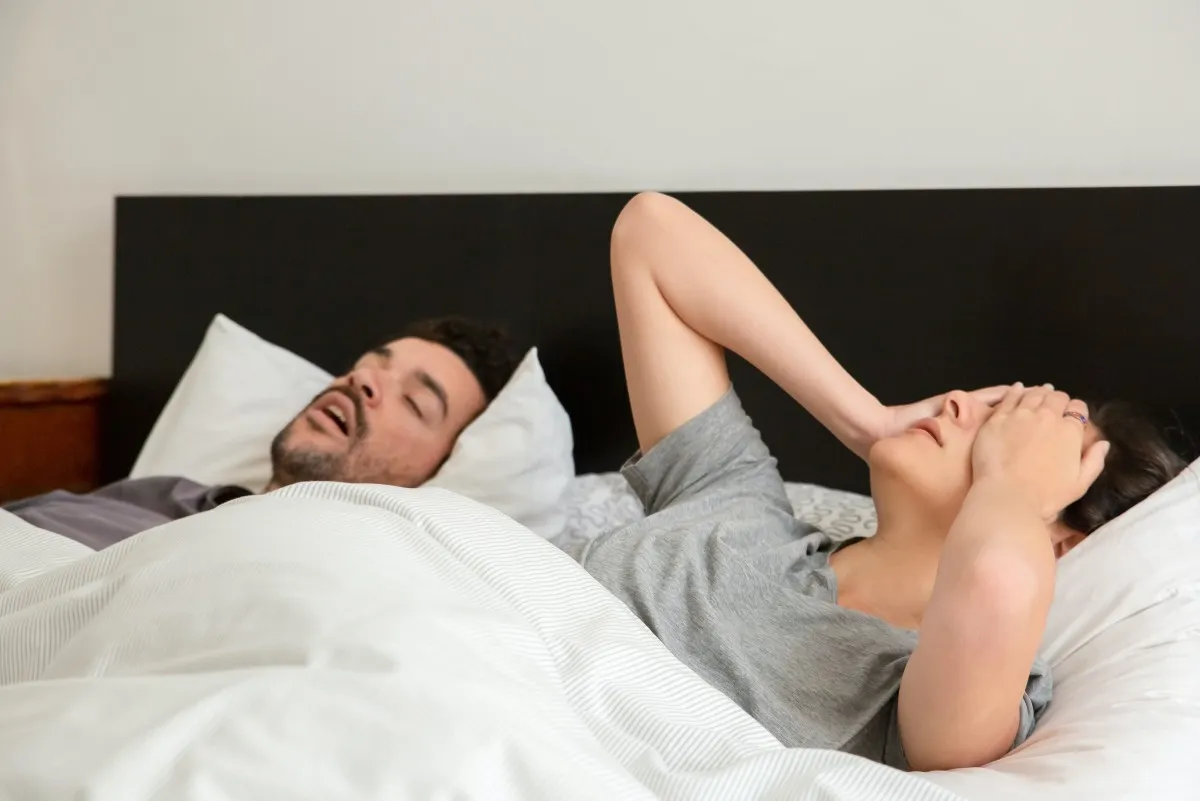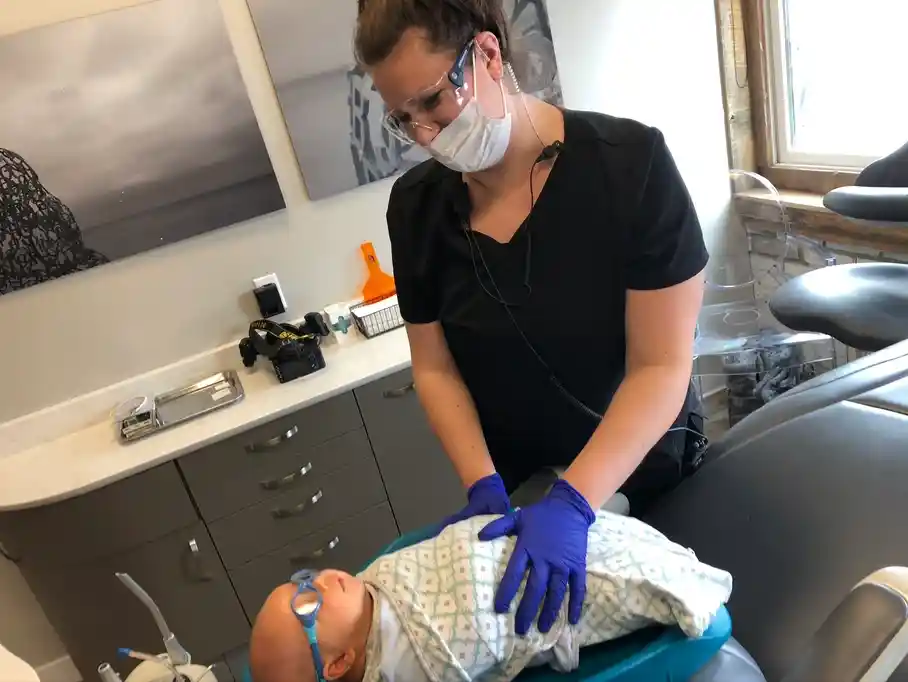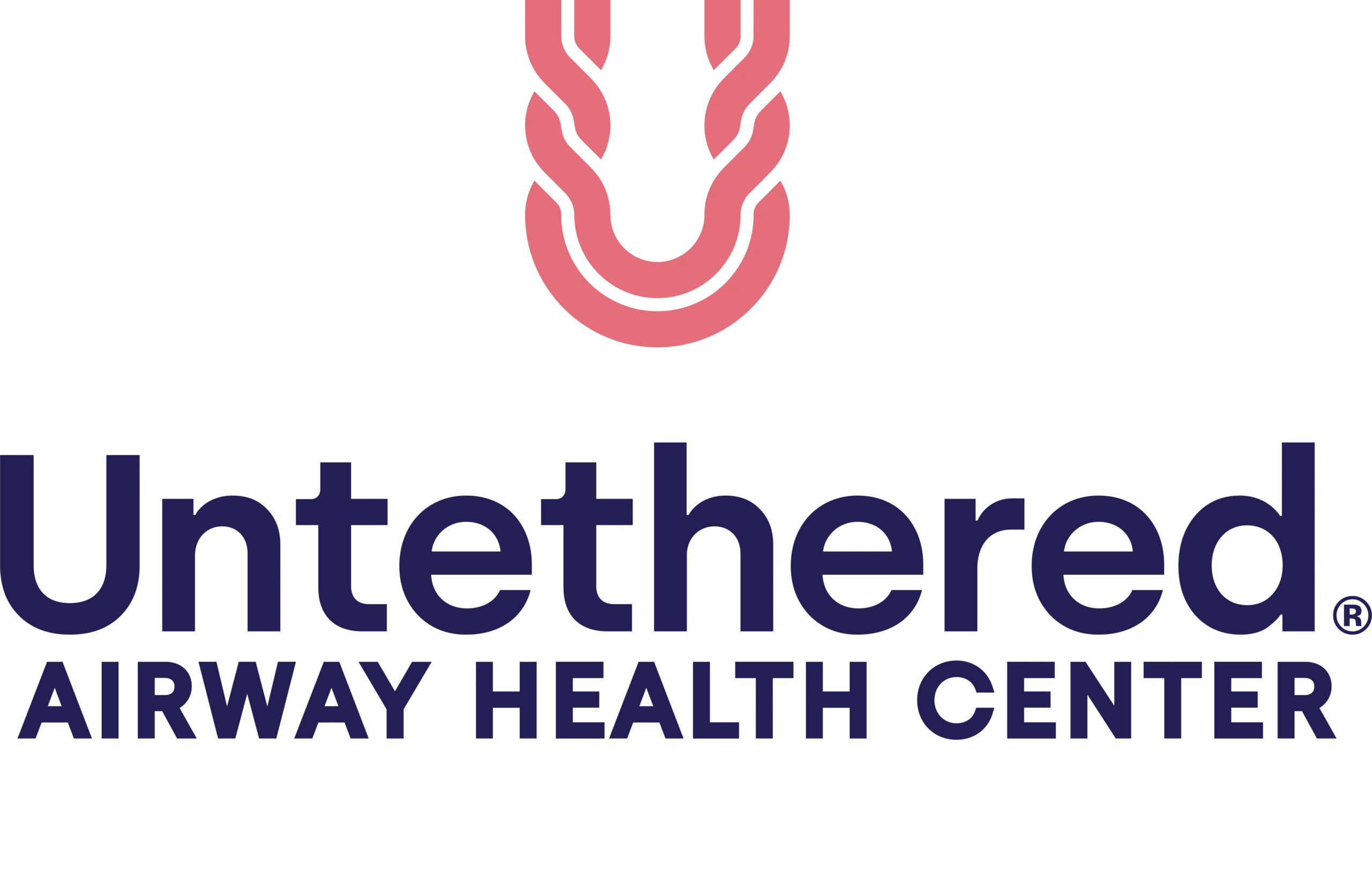Your snoring not only wakes you up from deep sleep but also interferes with the sleep schedules of those in the rest of your house. It can be loud and disruptive. It can also be a sign of sleep-disordered breathing. If you are trying to stop snoring (or to stop your partner’s snoring), it’s best to first take a look at why you snore. Here we explain the causes of snoring with natural myofunctional therapy remedies to help you sleep better.
What Are the Types of Snoring and What Do They Mean?
There are three types of snoring, each with its own cause:
1. Open-mouth snoring: Open-mouth snoring is when you snore because you sleep with your mouth open. This type of snoring is typically caused by weak tissue in your throat or nasal obstruction. If the muscles in your throat aren’t strong enough, they will relax even further while you’re asleep. They will obstruct your airways, which causes the tissue to vibrate.
2. Closed-mouth snoring: If your snoring occurs while your mouth is closed, the snoring is likely caused by your tongue. In this case, your tongue has an incorrect position or isn’t strong enough. As a result, it falls back into your throat, causing the obstruction.
3. Back snoring: The last type of snoring is back snoring, which is when you only snore while sleeping on your back. There are some lifestyle and sleeping habit changes that can help reduce the risk of back snoring. They include things such as losing weight or avoiding drinking alcohol before bed.
If you are worried you are either an open-mouthed or closed-mouth snorer, keep in mind that an effective, non-medicinal, natural snoring remedy available is myofunctional therapy.
Myofunctional Therapy to Stop Snoring
Weak airway muscles or poor tongue posture when you sleep cause open- or closed-mouth snoring. Just like exercises can help tighten the muscles of your body, you can use certain types of exercises for your mouth and throat to help reduce airway obstructions. Myofunctional therapy provides exercises for your throat and tongue. The techniques help you breathe through your nose and reduce the loose skin in your throat that vibrates and causes the snoring sounds.
Myofunctional therapy teaches you exercises designed to strengthen the tongue to optimize the tongue’s “posture.” These strengthening techniques will help improve the tongue’s resting position as well as the position when chewing and swallowing. Also known as “oropharyngeal exercises,” the techniques target the oropharynx located at the back of your mouth. This includes the back of the tongue, sides of the throat, tonsils, adenoids, and soft palate at the back of the roof of the mouth.
As you continue to practice your exercises, you slowly strengthen the tissue at the back of your throat to reduce vibrations when sleeping. To see the best results, perform these exercises at least 10 minutes each day, ideally 2-3 times a day. In most cases, your snoring will begin to reduce within three months. If it does not, that is a major red flag that there could be another structural issue going on!
What Is Involved With Myofunctional Therapy to Stop Snoring?
After a sleep & airway clinic assessment to determine your unique situation, your myofunctional therapist will provide instruction on the required exercises for your needs. This can include tongue slides, stretches, and “push-ups.” The exercises repeat several times during each session and require a commitment to help see results. Tongue exercises strengthen both your tongue and throat muscles as well as your soft palate. Sometimes, facial exercises also support tongue exercises. Natural snoring remedies help you avoid the need for surgery and medication.
By strengthening your throat and tongue muscles, you can lessen your snoring. You’ll also avoid the need for surgery or medication. Myofunctional therapy for snoring is a natural way to address the root problem. By practicing the exercises frequently, you can be on your way to better, restful sleep.
Schedule a consultation or virtual appointment with Dr. Liz Turner at the Untethered Airway Health Center. She will assess your unique situation and provide you with a customized treatment plan.
Want to learn more about sleep and airway health? Check out our Ultimate Guide to Sleep-Related Breathing Disorders.






